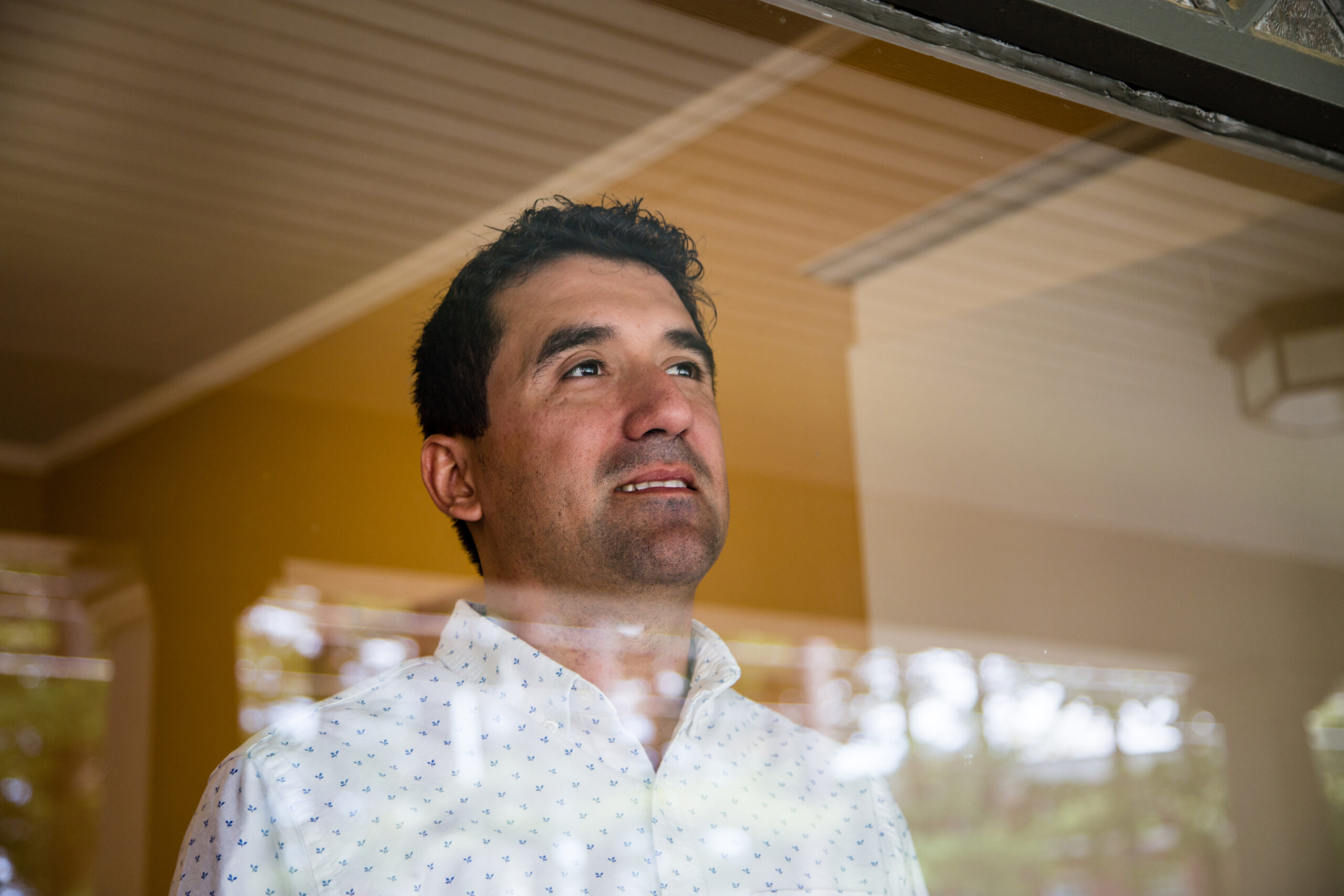Pazos shines bright, new light on old ideas
September 22, 2017
 Sam Honegger
Sam HoneggerEduardo Pazos just moved into his office in 30 College. The walls are mostly bare. The furniture has yet to be worn in. Yet, when he sits down to get interviewed, the standard accouterments lose their stiffness. He speaks slowly, choosing his words with deliberation and reverence. His tongue can make a home out of the word “prayer.”
He uses a lot of other words, too, like “reflection,” “meaning-making” and “peace,” “vulnerability” and “hope.”
Pazos is the new director of religious and spiritual life on campus, and he introduces his job with a negative statement: “My job is not to represent any one religious community on campus,” he said.
He is here to support students to practice their faith authentically, and for students who grapple with what faith means to them. He is here to educate and to learn and to listen.
“I think that the work that I do is not just religion and faith, but it is also a work of meaning-making and addressing questions of ultimate purpose.”
Pazos was raised in the Baptist tradition, a rarity in the majority Catholic Chihuahua, Mexico. For him, meaning comes out of the Hebrew Bible and its concept of shalom, or peace.
“I find God to be a God of peace, a God whose predisposition, whose first and only innate predisposition is to be of peace,” he said.
“When I’m talking to people and when I’m engaging with someone I am hoping that the space that we’re creating is a space of peace, of protection, of vulnerability, of honesty and authenticity. Because that’s what I think of when I think of God.”
Pazos engages completely with the person in front of him. His prerogative is to inspire dialogue, to make room on campus for vulnerability and tough conversations.
“I am keenly aware that things are never going to be made well unless we listen.”
“We’ll never get to have a fruitful or productive conversation if I’m listening to talk over you or if I’m listening to outsmart you.”
“But, if I’m listening to connect with you, with your humanity, to connect with your personality, then we’re actually two people engaging in something that I find to be more important and more transcendental than just the time space that we’re occupying right now.”
The office of religious and spiritual life on campus opened the semester with an interfaith barbecue on the lawn behind 30 College. This year, as dusk settled above the pines, six or seven people stayed at the table into the night.
“Muslims and Jews and Catholics got to have a very beautiful, honest conversation where they were sharing their faith practices,” recalled Pazos. “What these practices meant to them and how important they were to themselves and to their community, and why they mattered.”
“That’s not just talking about dialogue, but it is actually engaging in dialogue. I think every person at that table left that table more rich, more diverse and probably more grounded in their own tradition as a consequence of that dialogue, of that conversation.”
Not everyone at Bowdoin comes equipped to speak about existential questions. Although Pazos smiles at the thought of students ready to engage with big-ticket questions, he is eager to engage with anyone who might need him.
“There is a segment of students that is interested in these big, philosophical, ethical questions, that just takes joy into diving into these problems of suffering and evil and goodness and purpose,” he said.
“But I think, when that’s not the case, I’m keenly aware of the place that pain and suffering has played in my journey, and that it could very well be playing in the journey of the person who is sitting across from me.”
Pazos is an immigrant. He came to the U.S. at the age of 18, in possession of a student visa, two suitcases and 300 dollars. Now 32, he has not gone home since—not for his sister’s wedding or his parents’ divorce, not for the birth of his niece or a number of funerals.
“The person sitting across from me might not be interested in talking big questions about the reality of God, but they might be interested in sharing a little bit about the pain that they’re feeling right now, the emotional pain, the physical pain, the spiritual pain.”
“When that happens, that’s sacred ground.”

Comments
Before submitting a comment, please review our comment policy. Some key points from the policy: